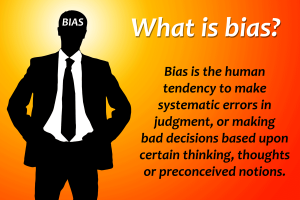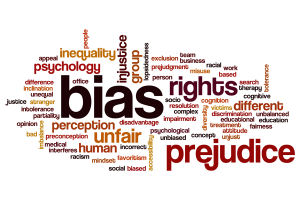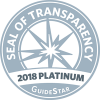Event Phone: (888) 782-4969
-
Recognizing Implicit Bias 210311-RIB-POST-003
March 11, 2021
8:00 am - 5:00 pm
Hosted by the Tulare County Sheriff’s Office
Tuition is paid for by the POST Innovative Grant Program. Students must be active POST certified personnel from a POST reimbursable agency in order to qualify for grant funding.
This course satisfies the legislative mandate for Racial Profiling Update training required in Penal Code 13519.4
Background

Research has shown us that we all have deep unseen biases that include racial bias. Consider the study conducted by the Urban Institute; researchers sent actors with similar financial credentials to the same real estate or rental offices to ask about buying or renting a home or apartment. In the end, no matter where they were sent, the actors of color were shown fewer homes and offered fewer discounts on rent or mortgages than those who were white. The results even surprised some of the actors of color; they felt they had been treated politely, even warmly.
Law enforcement personnel, already predisposed to cynicism, are extremely susceptible to deep and even unknown biases. One cannot expect a person to spend a career that is focused on looking for the bad in people to see the world with objective clarity. Moreover, based on this job, it is human nature for law enforcement personnel to instantly judge others. The officer safety aspect of quick judgements is a legitimate concern, but upon the backdrop of unrealized selective treatment as revealed in the racial/real estate study, it is hard to believe that law enforcement personnel would naturally treat people with complete equality.

According to TrustandJustice.org, research suggests that biased associations can be gradually unlearned and replaced with nonbiased ones. Perhaps even more encouragingly, one can reduce the influence of implicit bias simply by changing the context in which an interaction takes place. Mitigation strategies begin with sincere awareness of biases, and then require behavioral shifts to “unlearn” them. Only through outcome-based training that secures the affective buy-in of law enforcement personnel can we hope to create equitable policing services.
Executive Summary
Recognizing Implicit Bias is made up of student-centered learning activities that allow attendees to safely understand their own biases with a scientific approach. The curriculum design avoids an accusatory tone and focuses on objective facts revealed directly to each student by their own in-class discovery. Students learn in a safe environment with exercises that reveal deep personal preferences (biases) on things that are not at all controversial. It is a fun way to see things we like based on how we were socialized. Ultimately, students personally decide how they will apply the knowledge and skills learned that teach them to recognize their own implicit biases and how to mitigate them.
This is a highly interactive course and extremely well-reviewed. These are just a few of the outstanding comments from a southern California probation department:
“Best class I’ve ever taken with probation. It was very interactive, fun, and there was never a dull moment.”
“Great speaker. Very engaging and open to questions. Great insight.”
“Very insightful and very very enjoyable! Thank you sir.”
Course Objectives:
- Given four learning activities based on sociological studies using photographs, large-group facilitated discussion, and an instructional video, the students will identify at least three commonly held hidden biases.
- In a large-group facilitated brainstorm or working in small groups, the students will list at least four strategies to mitigate or eliminate biases.
- Working in small groups, the students will explain the effects of racial profiling and racial profiling laws.
- Working in teams, the students will score at least 70% on a multiple-choice test on Implicit Bias and Racial Profiling.
This course satisfies the legislative mandate for Racial Profiling Update training required in Penal Code 13519.4
Course Information:
Course Length: This course is certified for 4 and 8 hour presentations
Certification: California Board of State and Community Corrections (STC)
Cost/Tuition: $0 for POST reimbursable agencies
Max Class Size: 22 Students
Prerequisites: None
Recommended For: First responders and supervisors or any public servant in any capacity.
Venue: Tulare County Sheriff's Office
Address:
Description:
Students may park in any spot labeled for Law Enforcement

